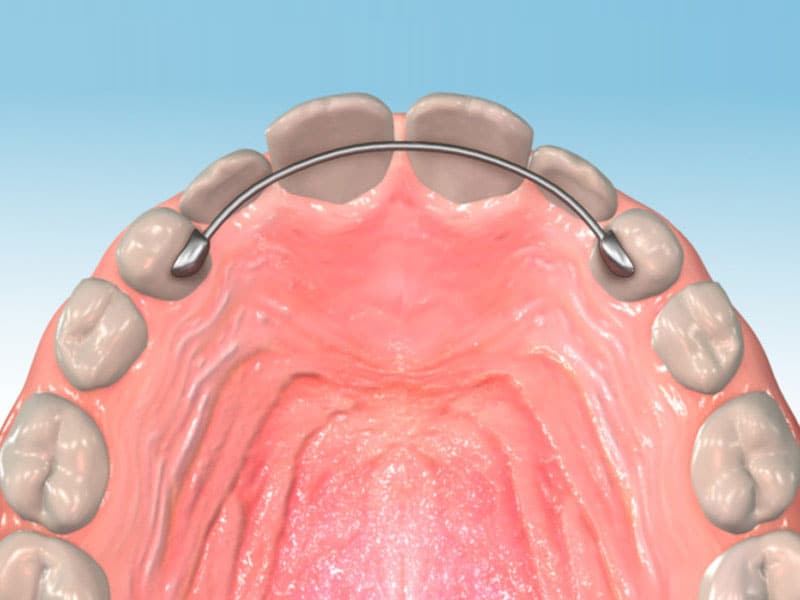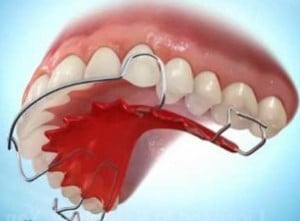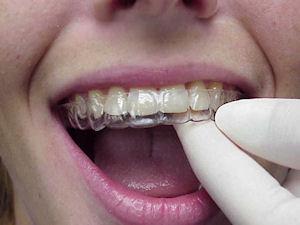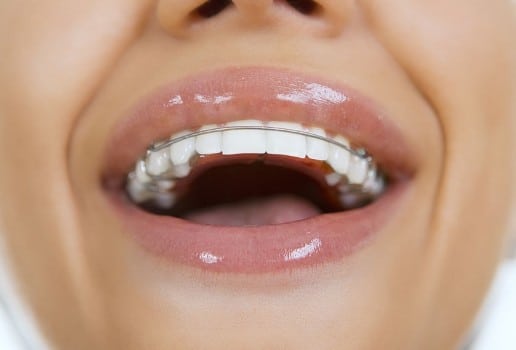The removal of your braces, as exciting as it is, does not signal the end of your orthodontic treatment. In fact, where braces end is where the most important part begins.
The next phase is called retention, and it is a critical follow-through stage that holds your teeth in their new placements — and even continues to provide minor corrections in some cases. If you follow your orthodontist’s instructions after he removes your braces, your new and improved smile will last a lifetime.
Your orthodontist will fit you for a retainer, which is an appliance you wear over your teeth to keep them perfectly in place. Without a retainer, all the improvement you see from your past couple years in braces will undo itself relatively quickly.
The orthodontist will probably ask you to wear your retainer every day and night for several months, subsequently during sleep and eventually a few nights per week. Like braces, your retainer might initially cause a sensation of discomfort or pressure, which will resolve as your mouth adjusts to the appliance.
There are two categories of retainers: fixed or bonded retainers that the orthodontist permanently secures to your teeth, and removable retainers.
Permanent Retainers
 Permanent retainers are sometimes options for patients who just completed significant orthodontic work, and need extra security while the teeth settle into their new locations. However, permanent retainers require regimented hygiene habits and are not for everyone.
Permanent retainers are sometimes options for patients who just completed significant orthodontic work, and need extra security while the teeth settle into their new locations. However, permanent retainers require regimented hygiene habits and are not for everyone.
There are different types of bonded retainers, and which your orthodontist suggests will depend on the condition of your bite and alignment, as well as comfort preferences.
Hawley Retainers
 A removable appliance, a Hawley retainer is made of a plastic shell that coats the roof of your mouth, and a wire that runs over the front of your teeth. Hawleys are available in a number of customs and styles, so you can have some fun accessorizing your smile.
A removable appliance, a Hawley retainer is made of a plastic shell that coats the roof of your mouth, and a wire that runs over the front of your teeth. Hawleys are available in a number of customs and styles, so you can have some fun accessorizing your smile.
The chief benefit of this type of retainer is that it is adjustable, so the orthodontist can make minor changes to your alignment after braces. It also is long-lasting and easy to care for. The biggest negative factor is that this retainer is very noticeable.
Essix Retainer
 The Essix retainer is made of molded clear plastic that easily slides over your teeth to maintain your alignment. This is a popular retainer because it is virtually unnoticeable. However, it does not allow your teeth to touch in a natural way and wears out faster than other retainers. In fact, of the types of retainers it is the most difficult to clean and can trap liquid against the teeth.
The Essix retainer is made of molded clear plastic that easily slides over your teeth to maintain your alignment. This is a popular retainer because it is virtually unnoticeable. However, it does not allow your teeth to touch in a natural way and wears out faster than other retainers. In fact, of the types of retainers it is the most difficult to clean and can trap liquid against the teeth.
No matter which retainer you and your dental professional decide is best, it is critical to follow all the directions for wearing it and to clean it regularly. If it is a removable retainer, when you are not wearing it make sure you secure it in the case your orthodontist supplies.
At Orthodontic Associates, our expert practitioners ensure that you receive the highest quality care both during and after braces. Contact us at any of our nine convenient locations around Baltimore for your complimentary consult , and see how we can help you on your way to a winning smile.



